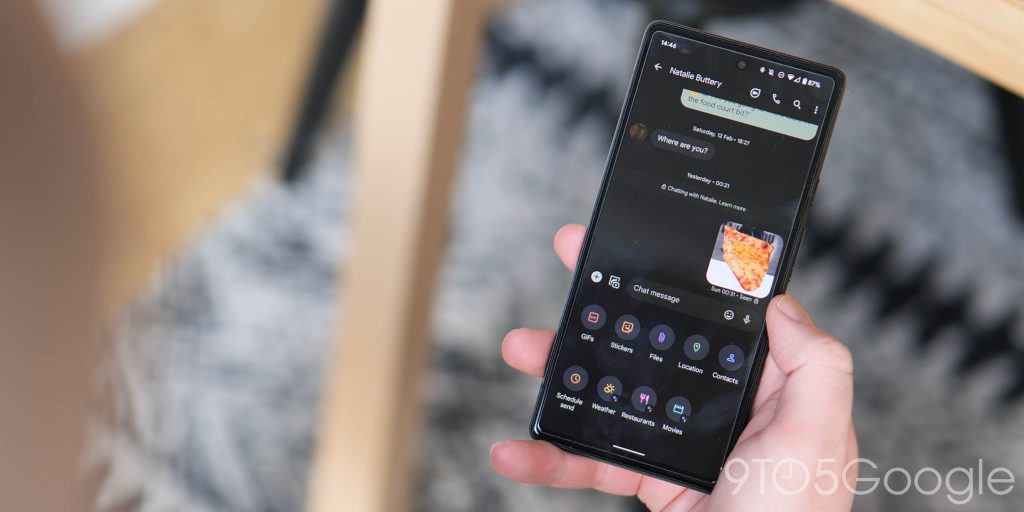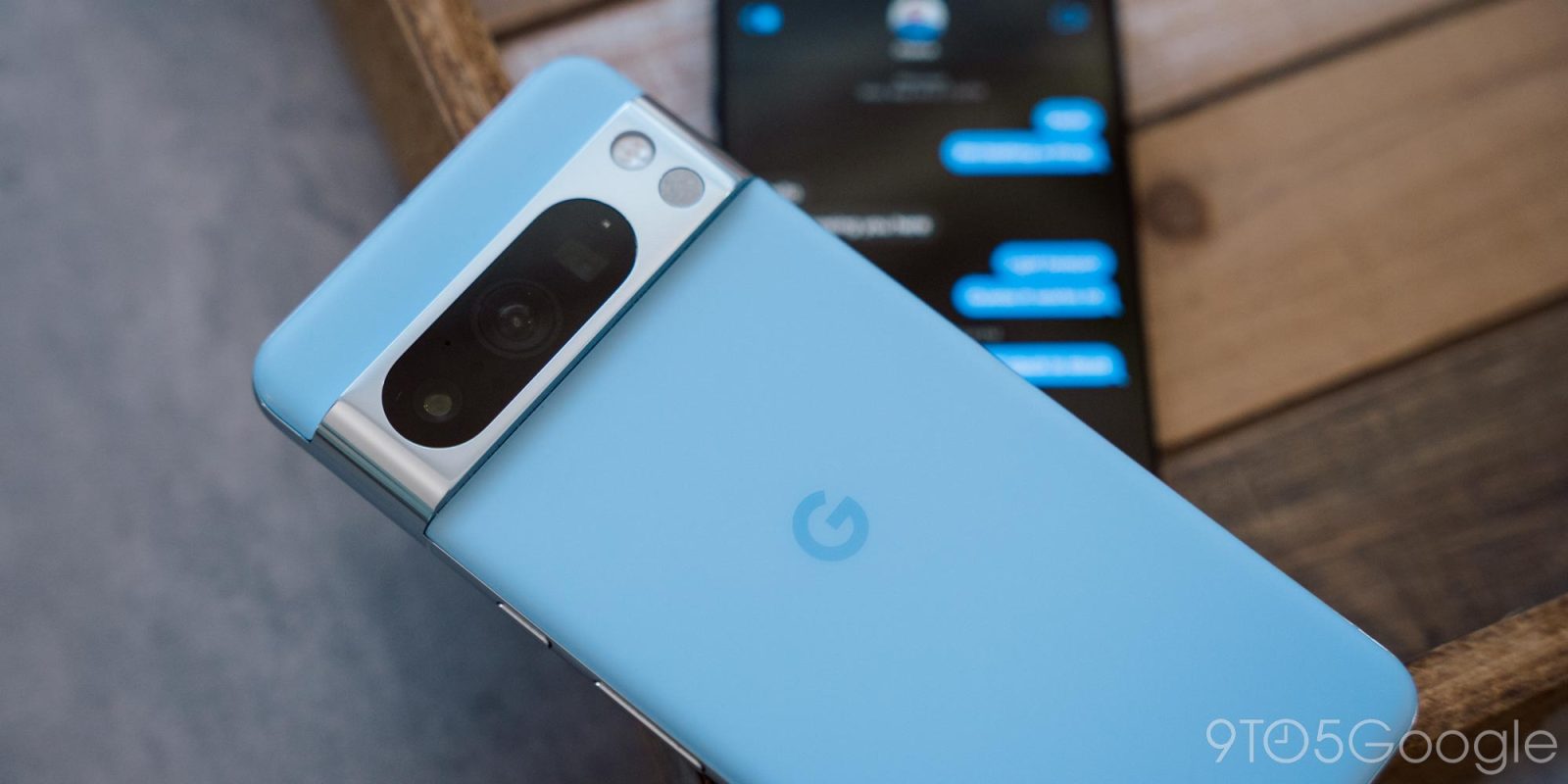
Over the past few weeks, iMessage for Android has been a big topic of discussion, and for many, it comes down to why Android users want to use iMessage so much. Personally, I don’t do that. iMessage for Android is, in a way, the path of least resistance when it comes to using a decent messaging app with people.
This edition of 9to5Google Weekender is part of the rebooted 9to5Google newsletter that highlights Google’s biggest stories with added commentary and other tidbits. Sign up here to get it delivered to your inbox early!
The conversation about iMessage for Android boils down to common preferences. Since the iPhone is very popular, especially among younger users, iMessage is also very popular. In fact, I don’t think it’s because it’s objective good Messaging service.
iMessage is good, but it’s extremely overrated.
As I’ve been using iMessage more during my time with the iPhone 15 Pro, Beeper, and MacBook Air, I’ve become more familiar with how everything works. In fact, I keep coming back to the conclusion that it doesn’t really do anything special. iMessage has its own great features, like Apple Pay integration, a quick and easy way to share location, and integration with third-party apps.
But, aside from that, iMessage seems pretty basic. There’s nothing about it that’s better than other messaging apps, and it lags far behind in other areas. Besides the fact that it’s limited to Apple’s walled garden, iMessage also limits emoji interactions — “tapbacks” — to just one of six options, and they’re not even good options. To this day, I still don’t know how the double exclamation point earned a place in such an exclusive collection when literally not a single emoji is used.

If I had the choice, I would prefer to use a fully-featured, cross-platform messaging service. Telegram has been my favorite for a while, because it has fun interactions, good group features, and great multi-device support. WhatsApp is also very good, and I find myself using it a lot because a lot of my friends use it.
However, I also found myself trying to find a way to keep iMessage on my Android phone. Why?
iMessage, for whatever reason, seems to have this control over people. I don’t understand why so many people feel like they can’t use anything but the Messages app on their iPhone, or have such strong feelings against just downloading another messaging app, but it’s very there. I only use iMessage to talk to a few people, and it’s just so I can make sure they see my messages, as the other platforms I’ve used to contact them don’t seem to get the same attention.
I think a big part of why people want to use just one messaging app is obvious. In those days all we had were SMS messages, all you needed to do was send a message and you knew they would get it. Now, you’ll know where To use this number. This is the only place I think Apple’s strategy really works. iMessage is built on the idea that SMS is, right now, largely unavoidable, with iMessage acting as an upgrade and SMS acting as a replacement.
This is attractive in today’s sparse world of messaging apps, and something that most apps on Android ignore. Only in Google Messages do we see a reversal of Apple’s approach, with RCS acting as an upgrade, and SMS as a fallback solution.

When Apple brings RCS to the iPhone next year, it will solve a lot of these problems, but in the meantime, it’s crazy that we still live in a world where reverse engineering iMessage to create an Android client works better for some users than just… iPhone users have to download another app. And somehow, the same iPhone users don’t understand it. In a recent column, John Gruber asked, if Android users wanted better cross-platform messaging, they would simply ask their iPhone friends to download “WhatsApp or Signal or something,” as if that wasn’t the problem all along. .
Some people have just decided that they won’t use other messaging apps, no matter how much it affects everyone else. Somehow, in their minds, a friend who puts in the money and effort required to move from their current phone to an iPhone is worth less than downloading a new messaging app.
An example of this is a post I saw in threads earlier this week that said:
I’m sorry, but I will never use WhatsApp or Telegram. If my friends don’t like Android, I’m sorry. I won’t have multiple messaging apps on my phone just to cater to someone else’s preferences.
amazing.
Personally, I can’t imagine being a burden to someone else like this. Me, no Wants To have 15 different messaging apps on my phone, but if someone wants to talk to me on another app, so be it.
If everyone, both Android and iOS users, were willing to settle on one cross-platform messaging app, it would go a long way to making this entire conversation non-existent in the first place.
Of course, the only problem with the room is that this is a US-only problem. Everywhere else in the world, it’s okay to use messaging apps. WhatsApp is very popular all over the world, and there are regional favorites as well. But the point is that only people in the United States seem to be against this idea. The answer to why is largely up for debate, but the conversation, at this point, has become exhausting.
The most important news of this week
New updates to Google Messages
Google Messages is in the midst of rolling out two new design updates, with shortcuts no longer appearing outside of the text box, and instead on the right side of the input field. Moreover, a new design for contacts is rolling out in the Messages app with photos and more controls.
Google Keep sets up lock screen integration
Meanwhile, Google Keep is getting some new functionality, as the app prepares support for Android 14’s new note-taking app role, which includes lock screen integration and better stylus support.
More top stories
From the rest of 9 to 5
9to5Mac: 9to5Mac Product of the Year: The new 15-inch MacBook Air
Electric: First drive of the Chevy Blazer EV – is it worth its $56,000 base price?
9to5Toys: Review: MAINGEAR’s MG-1 Gold offers an immaculately designed pre-built PC with interchangeable front panels
FTC: We use automatic affiliate links to earn income. more.

In recent years, there has been much debate over whether or not Apple should develop a version of iMessage for Android users. While some may argue that this would make communication easier for those who use different operating systems, the truth is, the availability of iMessage for Android shouldn’t really matter. There are plenty of excellent messaging apps already available that cater to all users, regardless of their device. Ultimately, what matters most is the quality and features of the messaging app, not the brand it comes from. As long as there are reliable and innovative messaging apps on the market, the lack of iMessage for Android shouldn’t be a concern.

